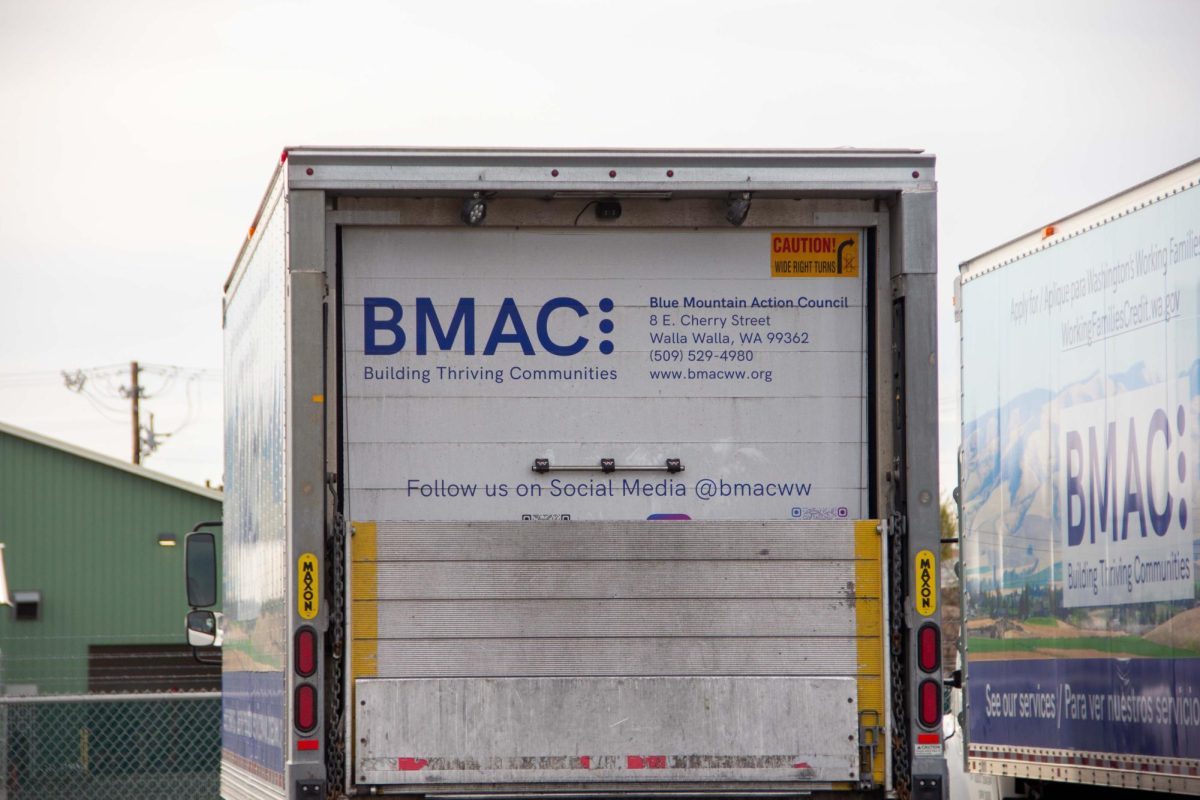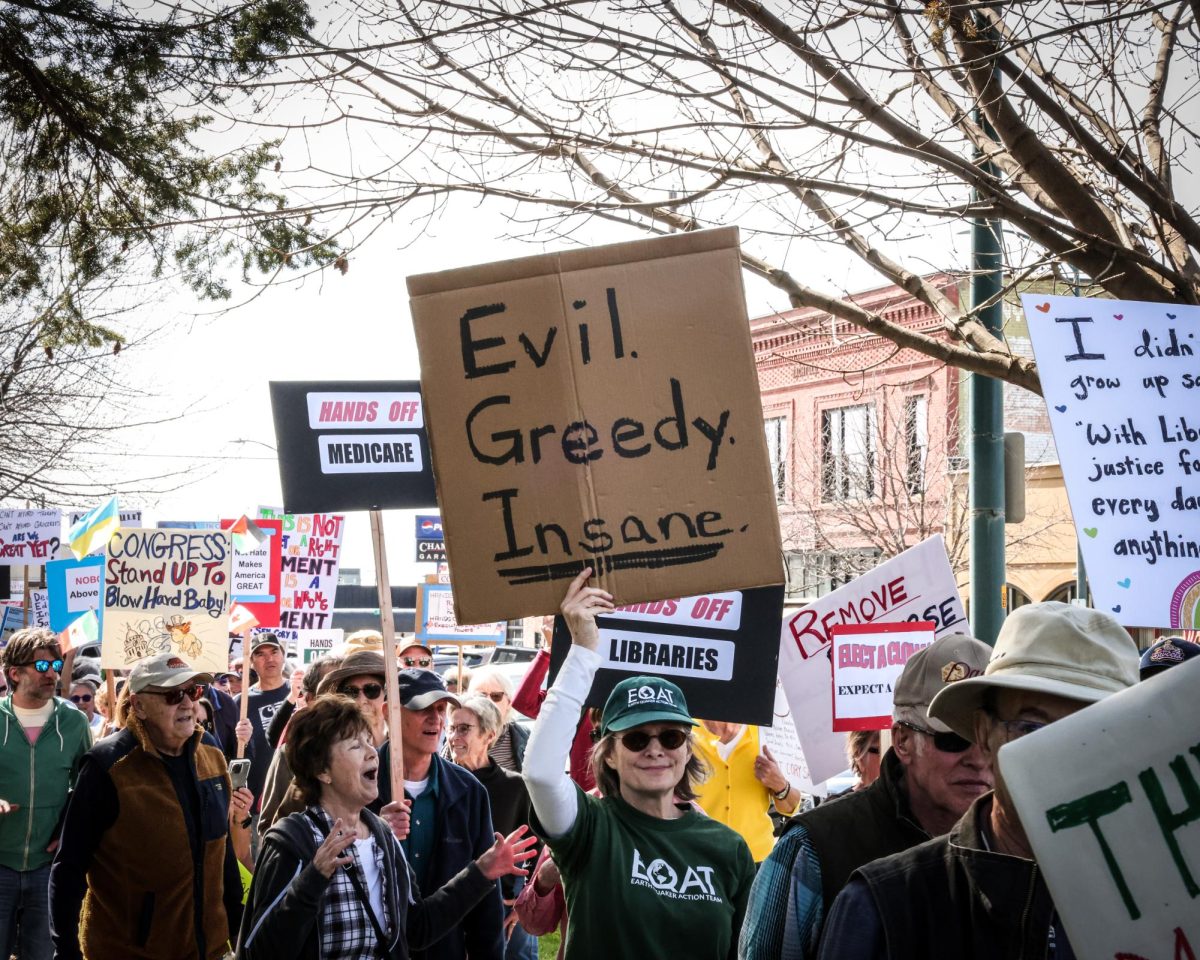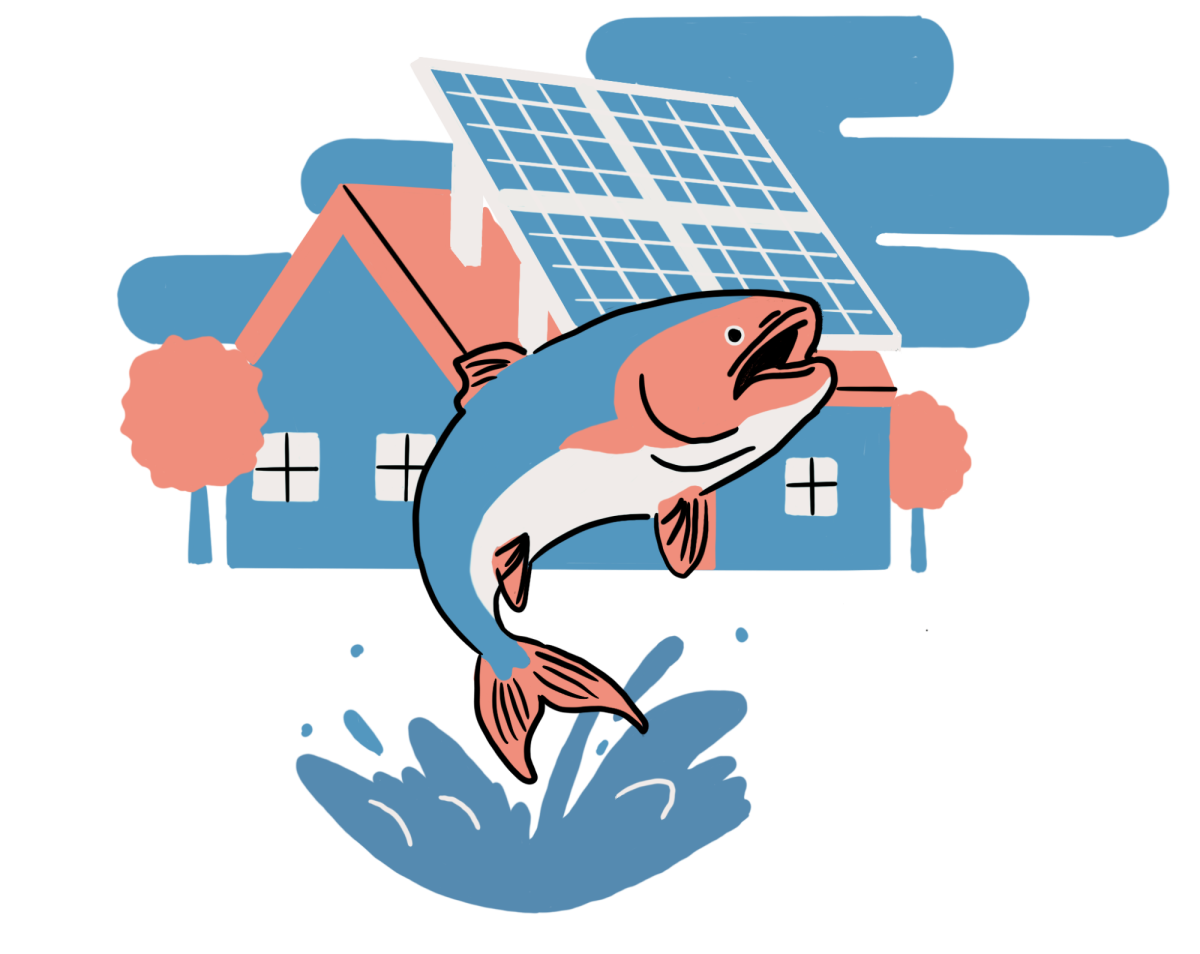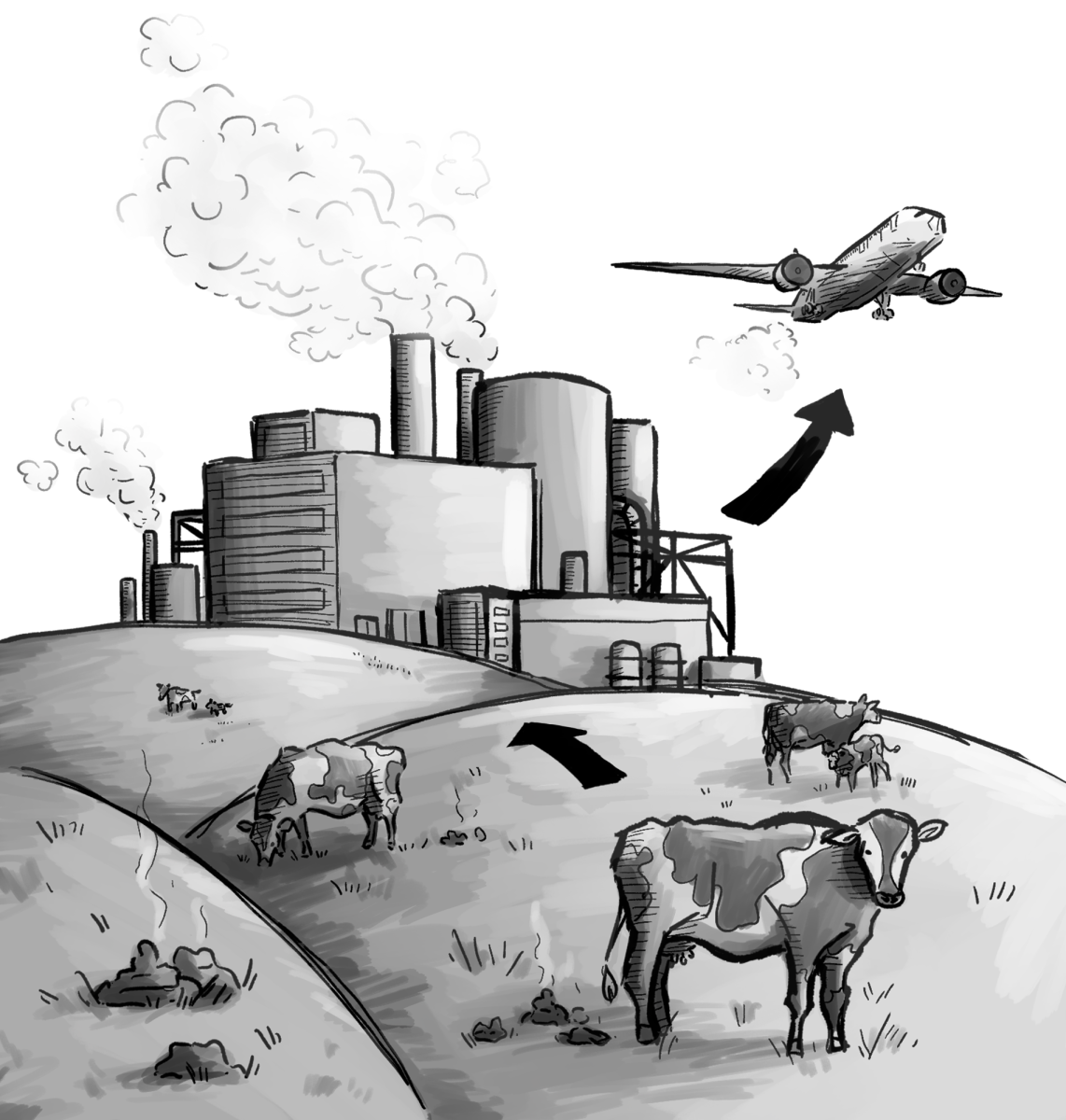
Voting for or against environmental ballot measures may be more complicated than many realize. Not only do such measures frequently involve complex or vaguely worded scientific concepts — e.g. “carbon capture” — but the overall impact of such measures can often be difficult to predict.
I spoke with junior Environmental Studies-Politics major, Aidan Tribolet, to get a clearer picture of the issue.
“It is challenging to know exactly what policy and ballot measures will do to the environment, not only due to the language and discourse around the measure but also due to the immense difficulty in imagining how something like, say WA’s carbon tax credit trading, affects the environment,” Tribolet said.
Tribolet identifies a common challenge in passing pro-environmental legislation: ambiguity in language and impact. I’ve heard many assertive and assured opinions, mainly from liberals, about how people voting in red states don’t care about the environment or don’t believe in climate change. While certainly some on the right are aware of our predicament and simply don’t care about trees as much as “the economy,” this is a much more nuanced and complex issue than many environmentalists may want to believe. Environmental policy outcomes in states that voted for Trump demonstrate the nuance in voter decision making.
With 73 percent voter approval, Louisiana passed a constitutional amendment requiring revenue received by the state from off-shore renewable energy production to be deposited into Louisiana’s Coastal Protection and Restoration Fund. These funds will be used for wetland conservation and other tactics to increase the state’s natural protection against flooding.
A ballot measure in South Dakota regarding a carbon dioxide pipeline was a bit more complicated. Referred Law 21, aimed at easing the construction of these pipelines, was backed by Summit Carbon Solutions, a corporation looking to remove carbon dioxide from the atmosphere and send it to North Dakota via pipeline to be sequestered in a geologic formation. Summit Carbon Solutions could make over $1 billion through its carbon sequestration due to the 45Q tax credit. Many environmental activists argue carbon capturing only serves to prolong the country’s reliance on fossil fuels, while most South Dakota voters are primarily concerned with rural land rights and public safety. The Law was rejected by voters, meaning Summit will face more legal challenges in the construction of the pipeline. This ballot measure is just one example of how the concerns of white rural voters who have historically supported Trump can overlap with the concerns of a more environmentally-oriented left.
Many people care deeply about environmental issues in majority Republican and conservative states, but Tribolet emphasized that many different factors of identity and context come into play when it comes down to how someone will actually vote.
“It is important to research how the environment is inextricable from governance, politics and the vast web of concerns that voters have, explicitly and implicitly,” Tribolet said.
The complexity in environmental legislation extends to blue states as well.
Though Washington voters rejected Ballot Initiative 2117, which would have repealed the Climate Commitment Act, Washington voters approved Initiative 2066, which requires utility companies to provide natural gas service to any person or business who requests it. I-2066 will also prevent the Washington Utility and Trade Commission from approving multi-year rate plans that require or incentivize terminating natural gas service.
A blue state known for its progressive environmental policy voting to protect natural gas further indicates that environmental politics are much more nuanced than red versus blue.
California passed Proposition 4, allowing the state government to borrow money to respond to climate disaster. California voters are one of many groups that are directly experiencing the immediate impacts of climate change, which helps explain why nearly 60 percent of voters approved the Proposition. There have been over 7,000 wildfires in the state since January 2024. However, Tribolet pointed out that even a ballot measure like Proposition 4 that seems very straightforward from an environmental justice perspective has its complications.
“California’s Prop. 4 is one such difficult proposal. It levies $10 billion in bonds for what many voters can agree are very necessary natural resource projects. While there is agreement in principle, part of the challenge to this proposition (which passed) is that it increases state debt when these projects should have already been planned into the current operating budget,” Tribolet said.
As Tribolet explains, there are many factors to consider when making choices on pro-environmental legislation. It is not as simple as seeing the words “climate resilience” and filling in “yes.” Despite its outward good intentions, the Proposition appears to be a bandaid to cover a previous error that should have never occurred.
The results of these various environmental ballot measures around the country highlight the many nuances in how people perceive environmental or climate issues. Assistant Professor of Economics Rosie Mueller explained that certain legislation and messaging around climate issues prioritizes some voters and alienates others.
“I feel like a lot of the Republican ticket was talking about [Democrats] forcing people to transition towards electric cars with more subsidies and other policies. And honestly, there is some evidence that these subsidies for EVs [electric vehicles] have not been the best policies to spur the energy transition. Most people buying electric cars would be buying them anyway without the subsidies, so there’s a lot of wasteful government spending associated there. You can’t target subsidies just to the people that wouldn’t be buying them [electric vehicles] without the subsidy,” Mueller said.
Mueller is referencing the Inflation Reduction Act, which allowed purchasers of electric vehicles to claim $7,500 as a tax credit on their tax return under select terms and conditions.
Mueller brings up a good point, that this type of legislation, meant to encourage people to move towards more environmentally friendly forms of energy, may be misdirected. Maybe the people who need incentives are those who are more resistant to the change, not those who are already in line for the next Tesla.
States where electric vehicles are most popular include California, Washington and Oregon. These states rely more on alternative energy sources, such as hydroelectric power, as opposed to states like Mississippi and North Dakota where purchasing electric vehicles is less common. These states rely more heavily on coal power plants and natural gas. Thus, electric vehicles may be most environmentally friendly in states that are already more likely to adopt them, and they certainly aren’t a one-size-fits-all solution. The electric vehicle debate highlights the infinite facets of our society that federal environmental legislation must consider.
Mueller also explained that the language politicians use when describing environmental policies may inadvertently push some voters away.
“I think there could be a different kind of messaging that’s less climate and environmental justice focused – which is progressive policy phrasing – and more jobs and energy focused; more things that the general public can get behind,” Mueller said.
Assistant Professor of Environmental Humanities Lauren LaFauci also brought up how a lack of connection to Democratic messaging can be a barrier to passing progressive legislation.
“Polls and other studies have shown that when you remove a political party label, and when you ask people, ‘Do you think the minimum wage should be a certain amount?’ or ‘Do you think that we should have Medicare for all?’ which are progressive questions, they tend to have more support, and then when you put a political party label on them the support goes away… I also don’t purely think it’s a messaging problem, however. There are people unfortunately who truly don’t support these things … and that’s been made clear this week,” LaFauci said.
As for how we might operate moving forward under another Trump presidency, she emphasized that progressives can still gain support for environmental policy by making these issues more accessible to a broader base.
“I think people want to make the right choices and inherently do the right thing for the environment …we just make it so hard,” LaFauci said. “If we could work on the local, state or regional level to make things easier for people, I think they would make the right choices.”
















